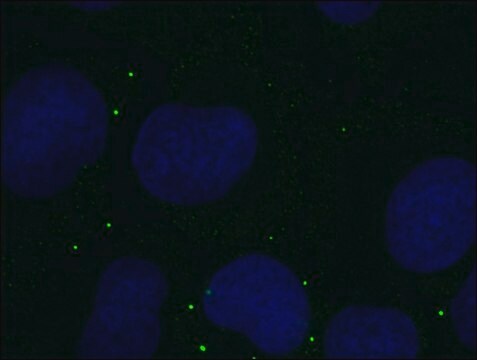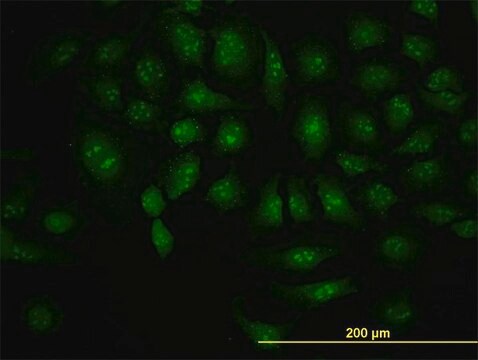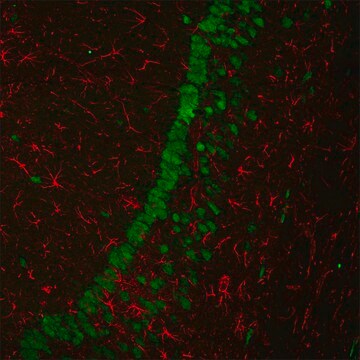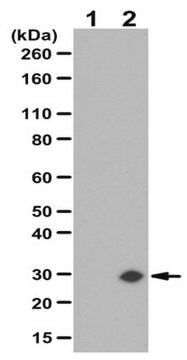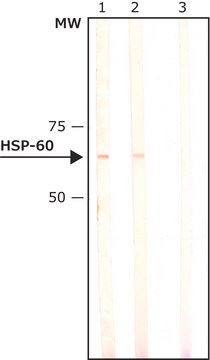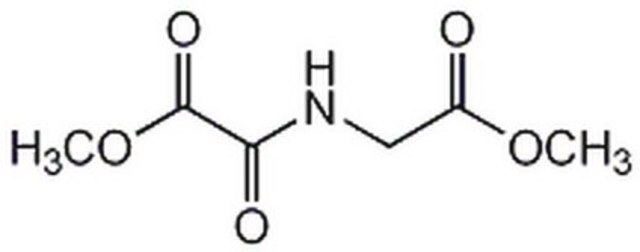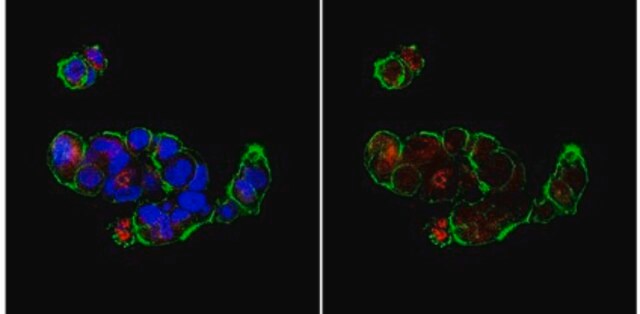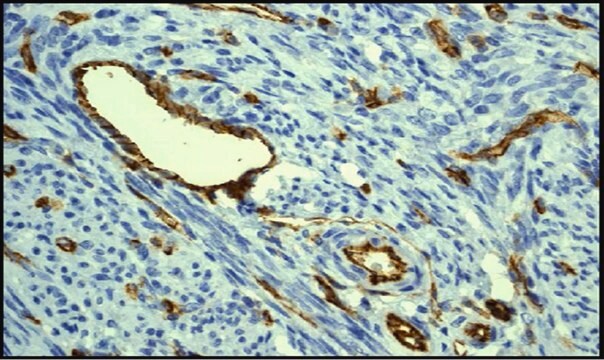SAB4200837
Anti-DDX6 antibody, Mouse monoclonal
clone DDX6-34, purified from hybridoma cell culture
Synonyme(s) :
ATP-dependent RNA helicase p54, DEAD box protein 6, HLR2, Oncogene RCK, Probable ATP-dependent RNA helicase DDX6
About This Item
Produits recommandés
Source biologique
mouse
Forme d'anticorps
purified from hybridoma cell culture
Type de produit anticorps
primary antibodies
Clone
DDX6-34, monoclonal
Espèces réactives
human, monkey, bovine, dog, rat, mouse
Conditionnement
antibody small pack of 25 μL
Concentration
~1 mg/mL
Technique(s)
immunoblotting: 1-2 μg/mL using human HeLa whole cell extract.
immunofluorescence: 10-20 μg/mL using human U-2-OS cells.
Isotype
IgG1
Numéro d'accès UniProt
Conditions d'expédition
dry ice
Température de stockage
−20°C
Modification post-traductionnelle de la cible
unmodified
Informations sur le gène
Monkey ... DDX6(101053064)
bovine ... DDX6(513906)
dog ... DDX6(479414)
human ... DDX6(1656)
mouse ... DDX6(13209)
rat ... DDX6(500988)
Description générale
Spécificité
Immunogène
Application
Actions biochimiques/physiologiques
Forme physique
Stockage et stabilité
Clause de non-responsabilité
Vous ne trouvez pas le bon produit ?
Essayez notre Outil de sélection de produits.
Code de la classe de stockage
10 - Combustible liquids
Point d'éclair (°F)
Not applicable
Point d'éclair (°C)
Not applicable
Certificats d'analyse (COA)
Recherchez un Certificats d'analyse (COA) en saisissant le numéro de lot du produit. Les numéros de lot figurent sur l'étiquette du produit après les mots "Lot" ou "Batch".
Déjà en possession de ce produit ?
Retrouvez la documentation relative aux produits que vous avez récemment achetés dans la Bibliothèque de documents.
Notre équipe de scientifiques dispose d'une expérience dans tous les secteurs de la recherche, notamment en sciences de la vie, science des matériaux, synthèse chimique, chromatographie, analyse et dans de nombreux autres domaines..
Contacter notre Service technique